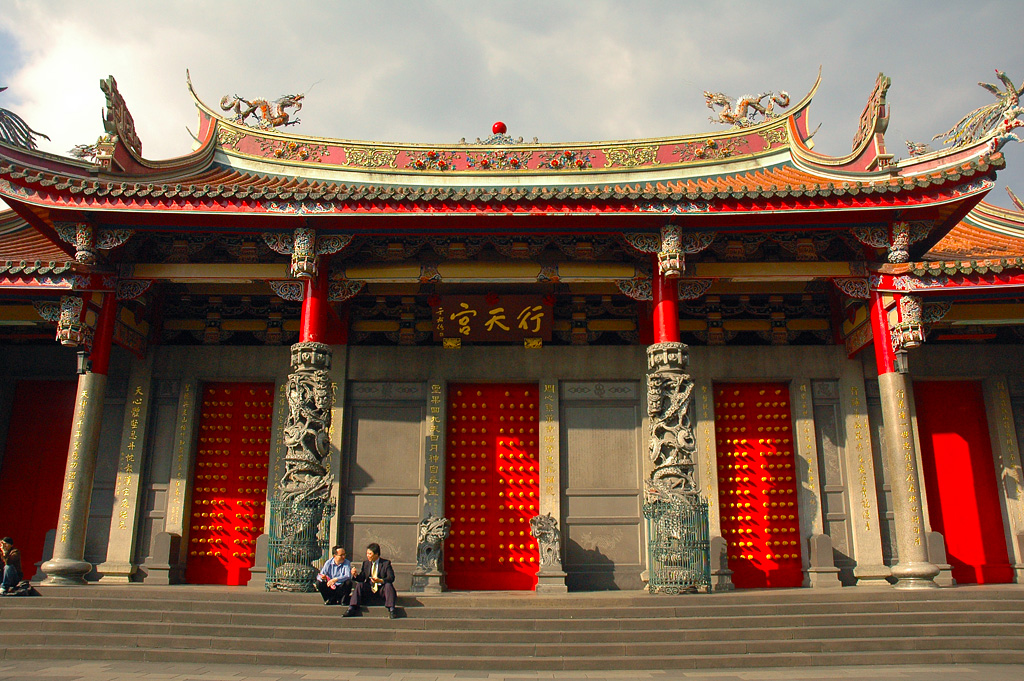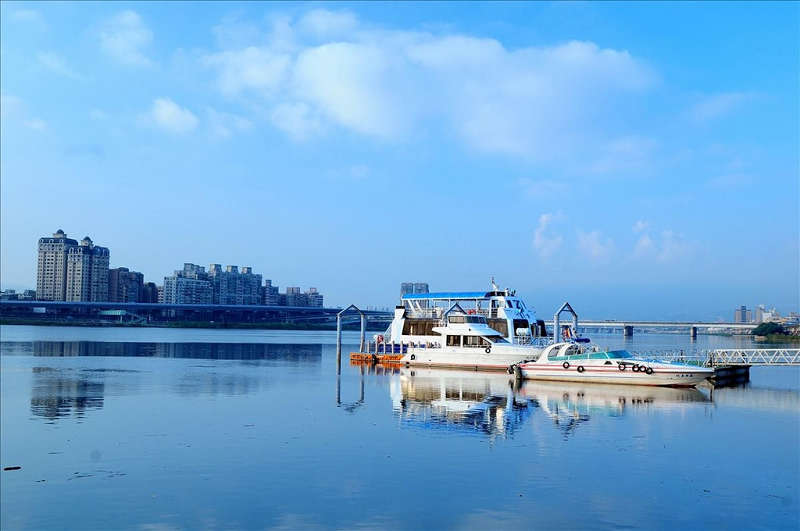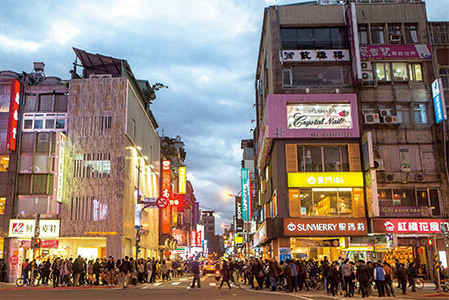Taipei 101, with a mass of shops on the lower floors, incorporate many top brands under the LVMH group, such as Louis Vuitton, Dior, Celine, etc. The fourth floor houses the Page One bookstore from Singapore, with the highest-roofed coffee house in Taipei and many fine restaurants.
The Taipei Zoo is the largest city zoo in Asia. Upon entering the grounds, you will find an extremely popular panda facility on your left. If you cant find the cute pandas, dont worry; theyre probably sunning themselves! Next, take the visitors tram. Listen to the recorded guide as he takes you along to the bird sanctuary, the Amphibians and Reptile House, the Penguin House and other areas such as the Tropical, African, Australian, Desert Animal Areas. In the Insect House, it is possible to come in contact with insects up close.On holidays, explanations are given at each site. Free-guided tours are also available upon advanced reservation. And if you love animals, you can consider adopting an animal and becoming its babysitter!

This very busy temple is devoted to Guan, a famous deified general who lived (A. D. 162-219) during the Three Kingdoms period. A man, who valued loyalty and righteousness above all things, Guangong is worshipped as the God of War; since he was adept at managing finances, he is also worshipped as the patron saint of businessmen. This is young temple, built in 1967, with a simple and dignified appearance. In front of the hall is a censer with a somewhat unusual design, its two handles in the shape of flying dragons and its four sides adorned with dragons’ heads stretching toward the sky. The courtyard of the temple is usually busy, with crowds of worshippers bowing their heads or kneeling in devotion. On the main altar you will see offerings of only fresh flowers and tea, since the temple forbids the killing of offering of animals. The temple also discourages the burning of ritual paper money as an offering to the deities and the spirits of the deceased, the staging of operas for the gods, the presenting of gold medallions in gratitude to the deities, and the like. The temple supplies free candles, and there is no donation box-a first for traditional religion in Taiwan! Many believers feel that this is a very efficacious temple, and it is frequently thronged with people praying for help and seeking divine guidance by consulting oracle blocks. Even the pedestrian underpass outside the temple is filled with fortune-tellers and vendors who take commercial advantage of the temples popularity.

Dadaocheng , spelled Twatutia before the Japanese occupation, Daitotei by the Japanese and Tataocheng during the Kuomintang era, is an area in Taipei Basin and a historic section of Taipei City. It was an important trading port in the 19th century, and is still a major historical tourist attraction and shopping area. When the export of tea became important in northern Taiwan in the mid-19th century, many businessmen came to Dadaocheng. The first store was Linyishun in 1851. Two years later, many people moved from Bangka following a serious fight. In the early 20th century, Dadaocheng was one of the most populous cities in Taiwan. In 1920, it became part of the newly-incorporated Taipei City. The most famous street in Dadaocheng was named Dihua Street after World War II. There are many stores selling dried goods and snacks, especially before the Lunar New Year. Xiahai Chenghuang Temple is also on Dihua Street. There is a festival to celebrate the birthday of Xiahai Chenghuang (a city god) on the 13th day of the 5th lunar month every year.
In 2007 the Taiwan Cultural-Creative Development Co. Ltd assumed responsibility for the renovation and operation of the Park and renamed it Huashan 1914. An organically creative environment has been growing ever since. Huashan 1914 now serves as Taipei’s primary creative arts center and a hosting ground for Taiwan’s most significant cultural activities. Examples include the Simple Life music festival and the BiBo student design expo. Today Huashan 1914 is not only the heart of Taiwan’s creative pulse, but also a bridge to a unique architectural past.

TAIPEI DONGMEN YONGKANG BUSINESS CIRCLE DEVELOPMENT ASSOCIATION is the famous business circle located at Sec. 2, Xinyi Rd., Da-an Dist., Taipei City, Taiwan. It is basically of south-north direction, between Jinshan S. Rd., and Xinsheng S. Rd., It starts from Xinyi Rd., and ends at Jinhua St., and famous for numerous fine shops and boutiques in between the alleys. Yong Kang Shopping Zone is centered from "Yong Kang Park" covering Yong Kang St., Li-Shui St., Partial Jinhua St., and stores around the corner of Xinyi Rd., At first the shopping zone was full of Taiwanese snack stands and restaurants, then gradually many exotic cuisines, stylish cafes and fine boutique stores gathered around here. Due to its convenient location near Da-an Forest Park and numerous kinds of restaurants, it always attracts many people at night or during the weekends. Due to Yong Kang Street is right next to Exit 5 of MRT Dong Men Station, ever since MRT HsingZhuang line and Xinyi line are in operation now, Yong Kang Shopping Zone even attracts more people now.